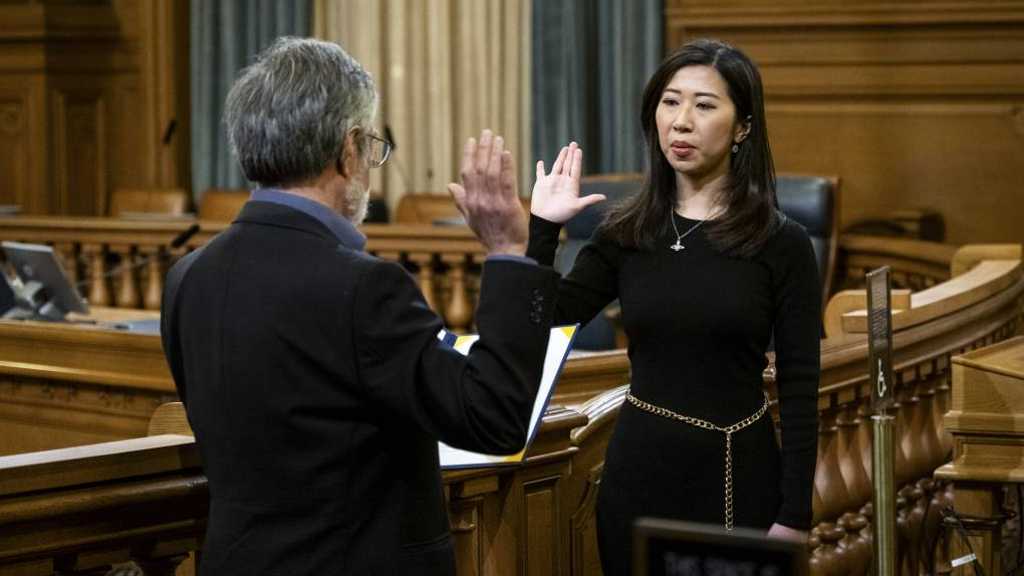‘I am deeply committed to ensuring that everyone, regardless of immigration status, has a seat at the table in shaping the future of our city.’
San Francisco’s Elections Commission has, for what is believed to be a first time in history, appointed a non-U.S. citizen, who isn’t legally allowed to vote, to serve as an official.
The officer, Kelly Wong, was sworn in on Wednesday, according to local news outlet KQED. It reported that Ms. Wong, an immigrant rights advocate, is a native of Hong Kong who arrived in the United States in 2019 for graduate studies.
She was sworn in by Board of Supervisors president Aaron Peskin during a ceremony at San Francisco City Hall after winning unanimous support from the board.
“This appointment is a milestone for all immigrant and marginalized communities throughout SF,” Ms. Wong said in a LinkedIn post on Thursday. “Representation matters: thousands of immigrants living in the city hold stakes in politics and there’s no better way to have us be represented than to serve in leadership positions.”
“I am deeply committed to ensuring that everyone, regardless of immigration status, has a seat at the table in shaping the future of our city.”
The appointment of a non-citizen to city boards, commissions, and advisory bodies was made possible in a 2020 vote, which saw voters pass the proposal by lawmakers to remove the standing requirement that candidates seeking office hold U.S. citizenship.
Mr. Peskin at the ceremony on Wednesday applauded Ms. Wong’s activism, saying, “I’m very impressed by her commitment to enfranchising people who rarely vote, to educating people about the voting process, and to bring in noncitizens and get them the tools they need as they become citizens,” he told KQED.
The former resident of Hong Kong, which now belongs to China and recently saw masspro-democracyprotests over the people’s lack of true electoral representation, said she hopes to improve immigrant and non-English voter engagement in her new home city of San Francisco, which has a ranked-choice voting system. She also told KQED that one of her priorities would be to put resources into better translations of voter materials.
By Melanie Sun







